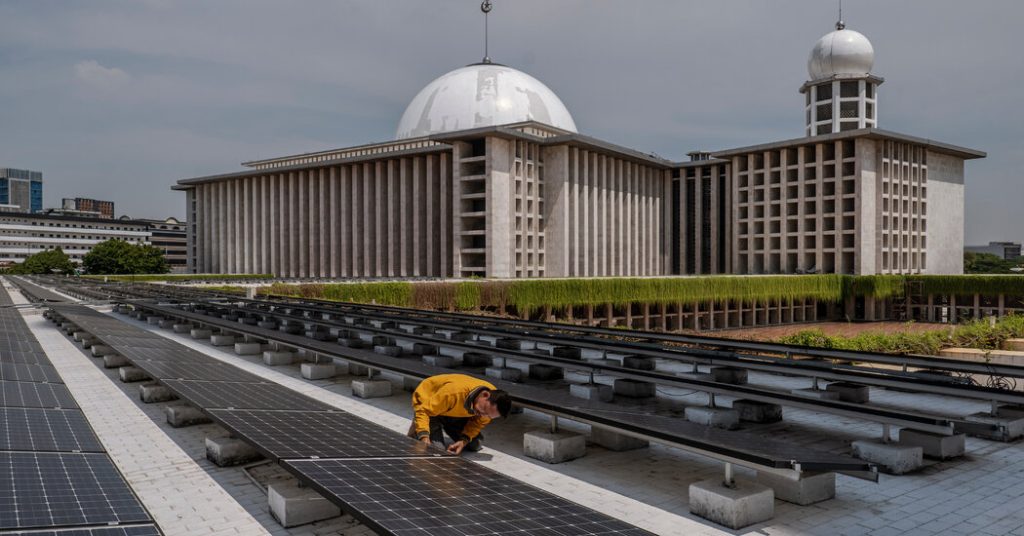In Indonesia, the Green Islam movement is gaining momentum, with religious leaders and activists promoting environmental conservation based on Islamic teachings. Grand Imam Nasaruddin Umar of the Istiqlal Mosque in Jakarta is leading by example by implementing eco-friendly practices at the mosque, such as installing solar panels and water recycling systems. He emphasizes the importance of caring for nature as instructed by Prophet Muhammad and encourages Muslims to be guardians of the earth.
The movement in Indonesia aims to set a good example for the rest of the world, given the country’s status as the most populous Muslim nation but also one of the largest emitters of greenhouse gases. While there are challenges, such as the country’s reliance on coal and the clearing of forests for development, efforts are being made to promote green initiatives. The Indonesian Ulema Council has issued fatwas against activities that harm the environment, which have had a noticeable impact on public awareness and behavior.
Despite some skepticism from clerics and the general public, advocates of Green Islam believe that educating the country’s 200 million Muslims can lead to significant change. By appealing to religious teachings and emphasizing the responsibility of Muslims to protect the earth, they hope to inspire individuals and communities to take action. The message of environmental conservation is being spread through various channels, including schools, mosques, and community initiatives.
Local activists, like Aak Abdullah al-Kudus and Elok Faiqotul Mutia, have been instrumental in driving the Green Islam movement forward. Through tree-planting campaigns, educational programs, and advocacy work, they are raising awareness about the importance of preserving the environment and incorporating Islamic values into conservation efforts. By highlighting the connections between Islam and environmental stewardship, they hope to inspire more people to take action and support green initiatives.
Efforts to promote environmental conservation within Islam have met with varying degrees of success, with some communities embracing the message while others remain unconvinced. However, the momentum is growing, with more mosques and organizations adopting eco-friendly practices and initiatives. By leveraging Islamic teachings and religious leaders’ influence, advocates of Green Islam believe that they can drive meaningful change and inspire a new generation of environmentally conscious Muslims.
The story of Indonesia’s Green Islam movement highlights the intersection of religion, environmentalism, and social change. By framing conservation efforts within Islamic teachings and values, activists and religious leaders are engaging communities and driving positive action. With continued advocacy, education, and collaboration, Indonesia has the potential to become a global leader in promoting environmental conservation through the principles of Islam.















